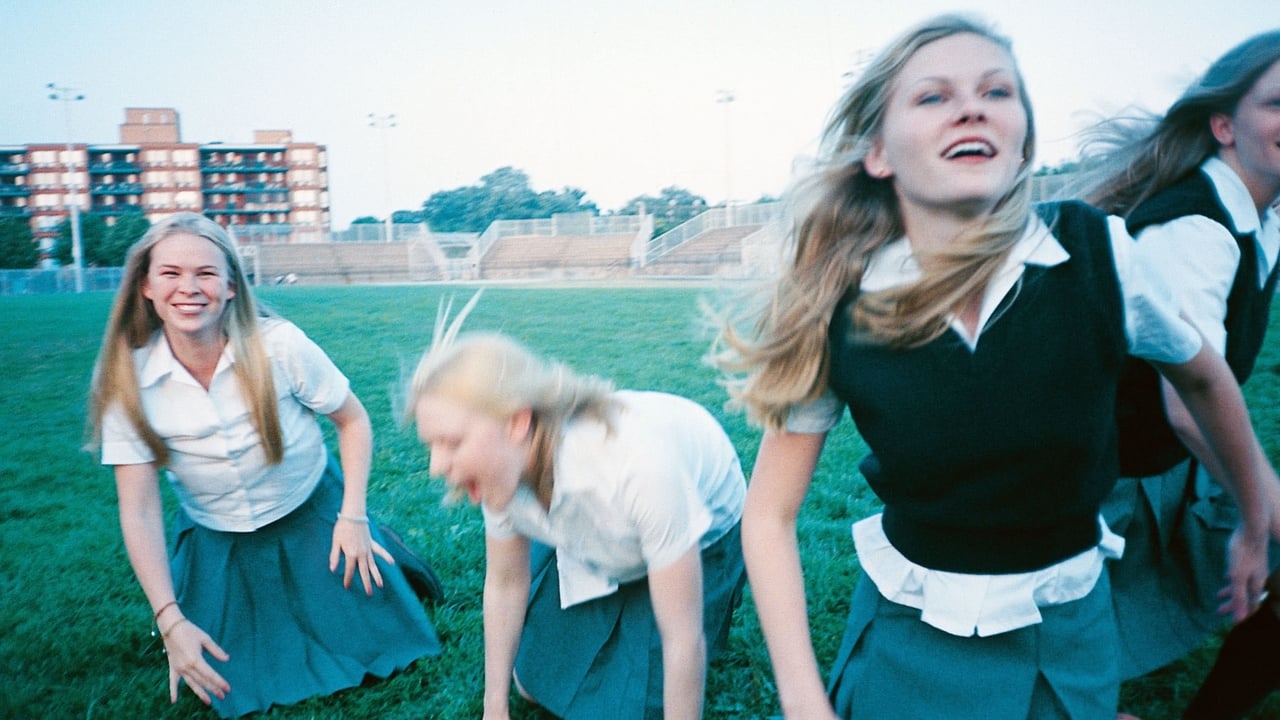The Virgin Suicides, Sofia Coppola's artful directorial debut from 2000, is a haunting tapestry of suburban angst and youthful longing. This movie review delves into Coppola's exploration of adolescence in the genre of drama and romance. Set in the tranquil suburbs of Detroit in the mid-1970s, the film takes us on a nostalgic ride through the eyes of a group of infatuated boys as they obsess over the enigmatic Lisbon sisters. Coppola paints a vision of melancholy that's both absorbing and haunting—kind of like watching your old home movies with a pinch of surreal mystery.
The plot spins around the lives of the five Lisbon sisters, cloistered by their strict, religious parents, played impeccably by James Woods and Kathleen Turner. These sisters become the unwitting subjects of fascination and myth for their neighborhood boys. At the heart of it, the story is a melancholic reflection on the elusiveness of freedom, identity, and the tragic frailty of life. The narrative flirts effortlessly with dreamlike sequences and grim reality—concocting a potion that's as intoxicating as a summer night's gaze. And let's talk about that soundtrack! It feels like a sixth sense guiding you through the whirlwind of teenage trials and tribulations.
When it comes to the acting, cinematography, direction, and screenplay, it’s hard not to gush. Kirsten Dunst shines as Lux Lisbon, embodying her character with a bewitching mix of vulnerability and charm. She’s like the high school crush you never got over. Josh Hartnett, with his feathery hair and brooding eyes, pulls off the quintessential heartthrob of the era. Coppola's direction feels intuitive—her ability to unearth raw emotion from her actors is nothing short of cinematographic witchcraft. The screenplay, which she adapted from Jeffrey Eugenides's novel, is woven with poetic dialogue and atmospheric depth, bringing to life a vivid portrayal of the fleeting nature of adolescence.
Comparing this cinematic gem to other dramas and romance films, I often think of other iconic works like 'Atonement' or 'The Perks of Being a Wallflower', which similarly delve into the complex tapestry of youth. Yet, unlike its contemporaries, The Virgin Suicides brings with it an ethereal, almost haunting quality that sets it apart—like a ghost story told by someone who actually met the ghost! It's a narrative where the mundane and the mysterious lie side by side, moving hand in hand to the rhythm of life's greatest puzzles. The movie subtly hints at deeper issues—mental health, repression, and the perennial quest for liberation—but never ventures into heavy-handedness.
If you fancy yourself a lover of drama or cherish the nostalgia of the '70s, this film is definitely a must-watch. It's both a bridge to a different era and a mirror reflecting the struggles of youth that remain universally relatable. So grab your popcorn, put on your rose-tinted glasses, and prepare to be enchanted by this cinematic masterpiece. Who knows? It might just ignite a spark for suburban mystery and leave you pondering the fragilities of life. Now, isn't that what great film critique aims for? Dive into this movie breakdown and see what whispers from the past catch your ear!

